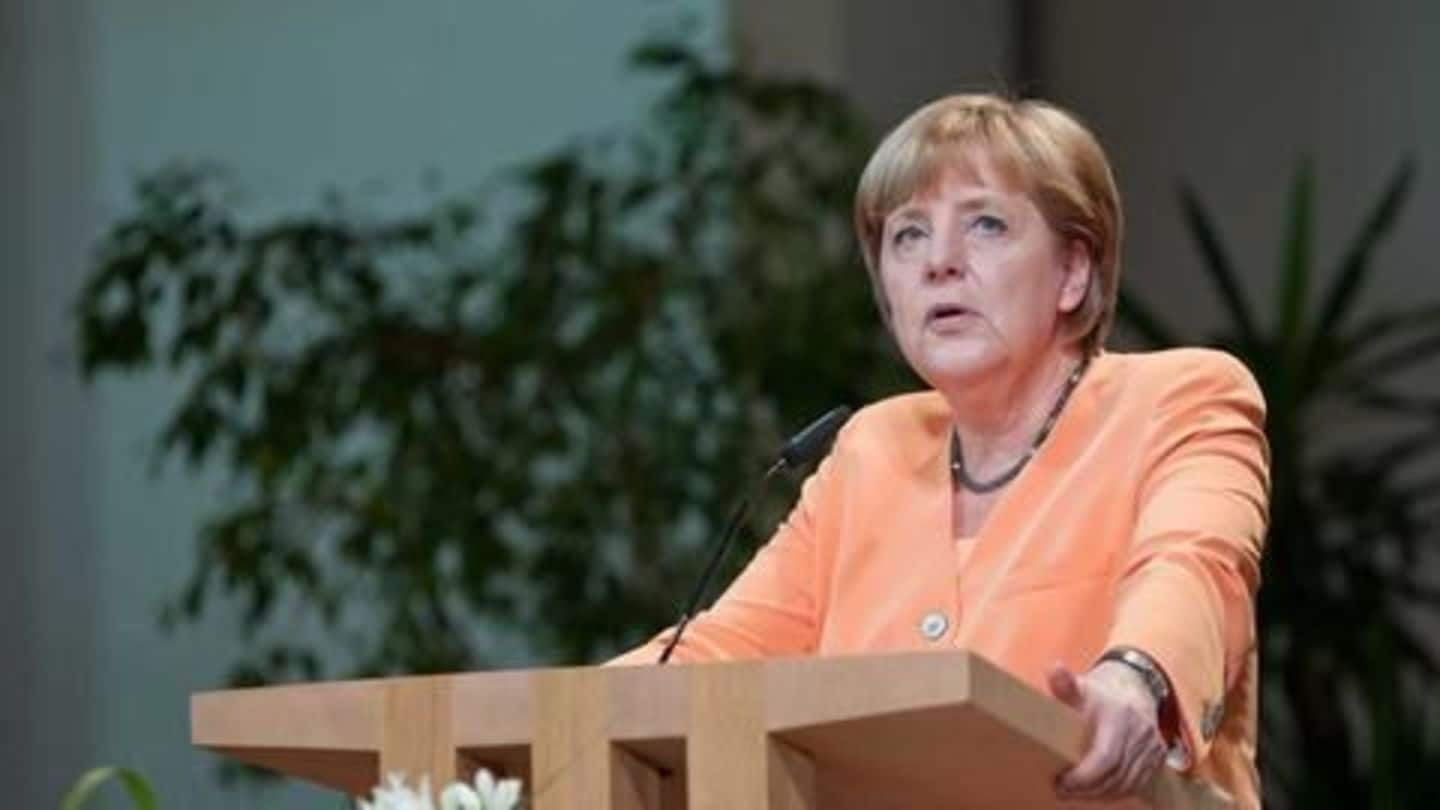
Germany: Merkel's Christian Democrats wins Saarland bellwether
What's the story
German Chancellor Angela Merkel's Christian Democrats party (CDU) won the state election in Saarland bellwether with a comfortable margin over their opponents. The CDU won 40.7% of the seats, over 10% above their closest competitor, the Social Democrats (SPD) who secured just about 29.6% of the votes. The outcome of the Saarland election is being observed to identify voter trends ahead of the general-elections.
Chancellor
The German Chancellor
The German Chancellor holds the post similar to that of a Prime Minister and is the head of the German government. At the end of the general elections, the party or the coalition which secures the majority then appoints their candidate as the new German Chancellor. Angela Merkel is the current Chancellor and is serving her 3rd term. She is eligible for a fourth.
Federal elections
The German Federal elections
The German Federal elections take place every 4 years. The main parties in Germany include the Christian Democratic Union (CDU), the Social Democratic Party (SPD), the Left, the Greens, Christian Social Union, the Free Democratic Party, and Alternative for Germany. In the 2013 elections, the CDU negotiated with the Social Democrats to form the current coalition government in power in Germany.
Refugee politics
How Europe's refugee crisis overhauled German politics
Chancellor Angela Merkel's open door policy for refugees led to significant political upheavals in Germany. Most importantly the move gave room for the rise of nationalism inside Germany. The right-wing Alternative for Germany (AfD) party which were on the political sidelines made significant gains in state elections, changing Germany's political landscape. The move also resulted in friction with Merkel's alliance partner, the SPD.
SPD
SPD elects new leader
In March 2017, Merkel's current alliance partner, the SPD chose the former President of the European Parliament, Martin Schulz, as their leader and chancellor candidate. Schulz's induction gave a significant boost in support for the SPD, which seeks to independently form a government in the September 2017 general elections. The move will rattle the CDU, whose grip on German politics seems to be waning.
Opinion
Opinion polls show that Merkel may lose
An opinion poll conducted by DeutschlandTrend showed that the SPD and Merkel's CDU were on a level footing in national popularity. The poll added that 45% of voters indicated that they would choose Martin Schulz to lead the next government, while only 36% showed support for re-electing Merkel. The AfD party seemed to be the only other contender apart from the CDU and SPD.